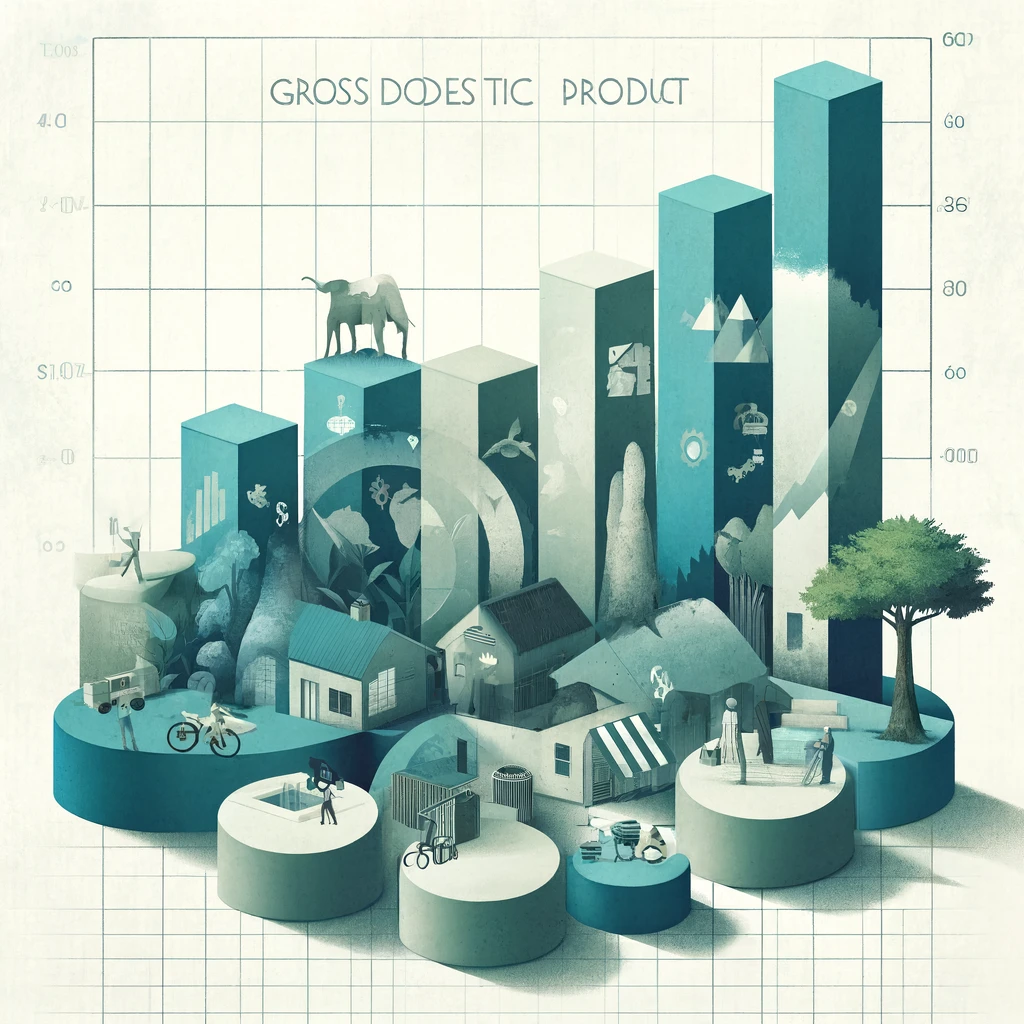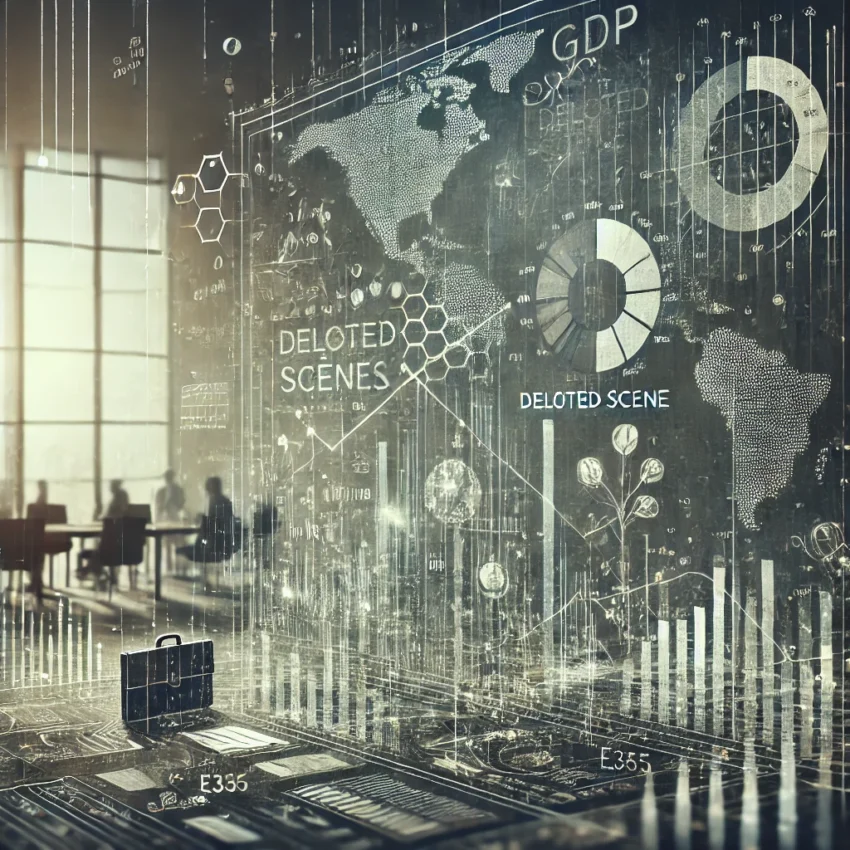The phrase GDP – Deleted Scene – E355 might seem cryptic at first glance, but it can open up a fascinating world of interpretation. Let’s unpack what this combination of terms could signify, how GDP (Gross Domestic Product) can relate to cultural discussions, and what a “deleted scene” may represent in both media and economic contexts. This article will explore possible interpretations, the significance of GDP in our world, and why understanding economic indicators is crucial.
What is GDP?
GDP, or Gross Domestic Product, is a crucial economic metric that represents the total monetary value of all finished goods and services produced within a country’s borders over a specific period (usually annually or quarterly). Economists and policymakers use it to gauge the economic health of a nation, understand growth trends, and make predictions about the future.
In simple terms, GDP acts as a snapshot of a country’s economic performance. It includes everything from goods like cars and clothing to services like healthcare and education. The GDP figure provides insights into the overall well-being of an economy and is a common tool used to compare the economic strength of different countries.
Deleted Scene: An Unusual Perspective on GDP
So, how could “deleted scenes” fit into a discussion about GDP? Just as deleted scenes in movies provide background or additional context, there could be “deleted scenes” in GDP calculations — elements of an economy that aren’t counted directly in GDP.
Uncounted Aspects of GDP: The “Deleted Scenes” of the Economy
- Informal Economy: Many countries have extensive informal sectors, where people earn a living outside of formal employment structures. Street vendors, freelance workers, and gig economy participants often fly under the radar. In some developing countries, this “deleted scene” could be as high as 60% of the economy.
- Household Labor: Tasks like childcare, housework, and elderly care may hold significant economic value, yet they’re often not counted in traditional GDP calculations. These tasks contribute to a society’s well-being and support the workforce indirectly.
- Environmental and Social Costs: GDP doesn’t account for pollution, deforestation, or other environmental impacts that come with economic growth. Some consider these costs a hidden “deleted scene” that eventually influences quality of life, even though they’re not reflected in GDP figures.
- Black Market Activities: The black market and underground economies can be extensive. Whether it’s unregulated goods or unreported income, these segments contribute to economic activity in ways that GDP doesn’t measure.
Episode E355: Could This Refer to a Specific Event or Context?
If “E355” relates to an episode, it could signify a cultural reference, like a documentary or a fictional portrayal that tackles GDP-related issues. Suppose a hypothetical episode titled “E355” were part of an economic documentary series. It might discuss a scenario where omitted factors of GDP play a significant role in understanding the real picture of an economy.
For instance, Episode E355 could be about “The Hidden Economy” or “Deleted Scenes of Growth,” highlighting sectors that go unnoticed in conventional GDP metrics. Alternatively, it could portray a time when economic growth was high on paper, yet many citizens felt economic hardships—a reminder that GDP alone doesn’t show the full picture of economic health.
Why the Concept of GDP’s “Deleted Scenes” Matters

Understanding GDP’s limitations is essential for anyone studying economics or seeking a holistic view of a nation’s health. These “deleted scenes” provide a fuller, more nuanced picture of economic realities. Below are some reasons why they’re significant:
- Better Policy Making: If policymakers ignore large parts of the economy, they risk enacting policies that do not serve the public effectively. By understanding the informal economy or environmental costs, governments can create more inclusive policies.
- Holistic Growth Measurement: Beyond GDP, alternative indicators like the Human Development Index (HDI) or Genuine Progress Indicator (GPI) include factors like life expectancy, literacy rates, and environmental costs. These broader measures offer insights beyond GDP’s “deleted scenes.”
- Social Awareness and Inclusivity: Recognizing “deleted scenes” like unpaid household labor or black market activities acknowledges the contributions and struggles of individuals often left out of the official economy.
- Economic Justice: A holistic understanding of GDP’s limits helps address economic inequality. By paying attention to uncounted labor and environmental impacts, we can foster more equitable growth.
FAQs
1. What does GDP measure, and why is it important?
GDP measures the total monetary value of goods and services produced in a country. It’s important as it provides insights into economic health, growth trends, and national prosperity.
2. Why might some parts of the economy be left out of GDP?
Some parts, like household labor, informal sectors, and environmental costs, are difficult to quantify in monetary terms or are simply overlooked by traditional economic metrics.
3. What is an example of an uncounted “deleted scene” in GDP?
Household chores and unpaid caregiving are often not counted in GDP, even though they add value to the economy by supporting workers and family stability.
4. Are there better alternatives to GDP?
Yes, indices like the Human Development Index (HDI) and Genuine Progress Indicator (GPI) attempt to capture economic and social well-being, offering a more comprehensive look at a nation’s health.
5. Why is understanding GDP’s “deleted scenes” important?
It helps provide a holistic view of an economy, encouraging fair policies and recognizing the value of often-overlooked sectors, contributing to more inclusive and sustainable growth.
Conclusion
GDP – Deleted Scene – E355 opens the door to exploring how our traditional metrics for economic growth may miss essential aspects of real-life well-being. Understanding these “deleted scenes” can lead to better policies, a more just society, and a more accurate reflection of economic reality.
Stay informed with the latest news and updates on lookatnews.co.uk
